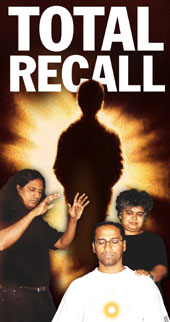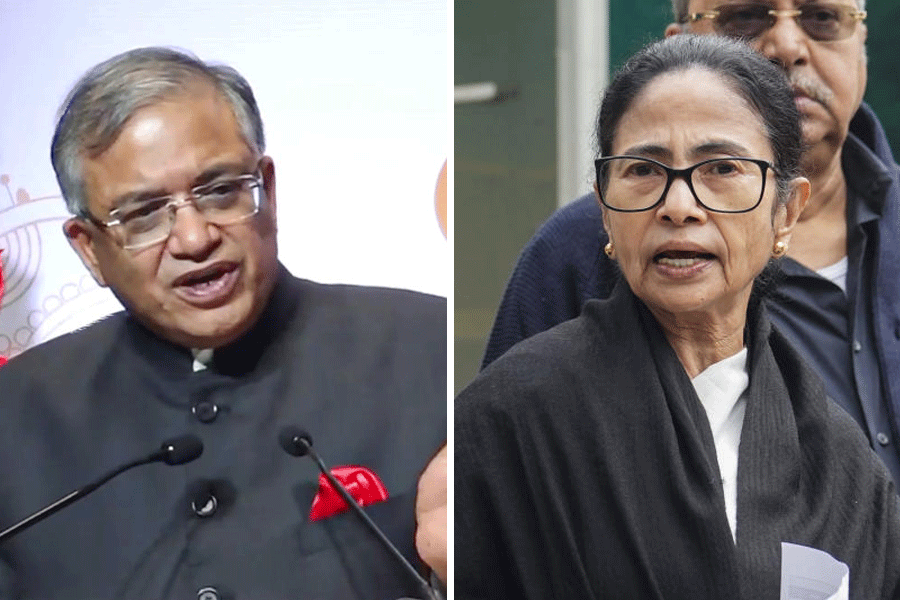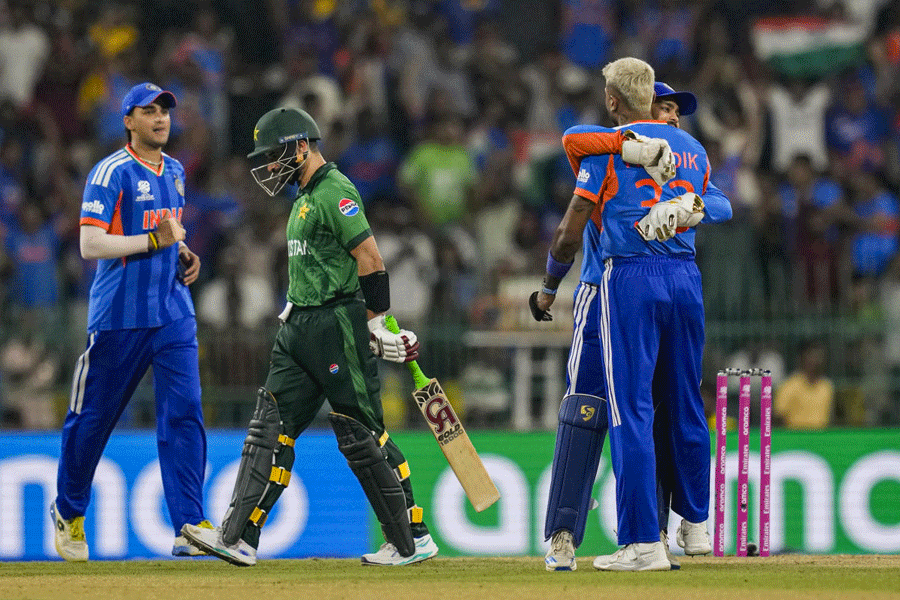 |
| CYCLE OF LIFE: Celia (right) and Tarun Cherian (left) with a subject at a Past Life Regression therapy session |
Dhiraj Kant?s colleagues don?t stop to wonder when they see him charging up the stairs, with a laptop, office bag and a Tupperware tiffin case flying behind him. The 27-year-old, Bangalore-based software engineer doesn?t ever take the office lift to work.
Kant is not a health freak. He feels claustrophobic in closed spaces and crowds. It doesn?t interest him that PVR has started an 11-screen multiplex in the city ? he doesn?t go for movies. He has never visited the Forum Mall ? Bangalore?s most famous hangout joint.
Acute claustrophobia was the one bad patch in Kant?s happy and healthy childhood. ?From the age of five, I?d dream of being squeezed into a small space. I couldn?t touch, express or communicate,? says the tall, lanky employee of a top IT multinational.
Kant visited doctors and psychologists but found no answers. As a final shot in the dark, he visited a past life therapist ? and the answers came in a flash. Through a series of sessions known as Past Life Regression (PLR) therapy, Kant discovered he was a wild goat in a previous life. ?I felt the same claustrophobia and inability to communicate that I dreamt of,? he says.
Don?t laugh off Kant?s claims. It comes stamped with scientific approval.
Bangalore?s National Institute of Mental Health and Neuro Sciences (NIMHANS) and the University of Virginia have been studying and documenting reincarnation since 1974. The three-decade-old research is now throwing up results. ?We now have enough evidence to believe in reincarnation,? says Dr Satwant Pasricha, head of department, clinical psychology, NIMHANS.
Pooh, say the rationalists.
The scepticism, however, doesn?t seem to have deterred past-life researchers who have identified and studied 2,600 cases of supposed reincarnation across eight cultures of the world. Of these, Pasricha has studied 500 cases in India. University of Virginia and the Indian Council of Medical Research (ICMR) have funded her research.
Pasricha claims to have toed every scientific line while studying reincarnation. Repeated interviews were conducted with the family and friends of a child who claimed to have a previous life, and the child?s behaviour was closely monitored.
The team interviewed surviving family members of the supposed previous life and consulted sources such as horoscopes, records at the municipality, police stations and hospitals for verifying birth and death dates.
One of Pasricha?s early subjects was Naresh Kumar. He was born in 1981 in Baznagar, a village near Lucknow. By the age of four, Naresh was talking of a past life. He called himself Mushir Ali, and said he had lived in a nearby village, Kakori and had died in a road accident while carrying mangoes in his horse-cart. The researchers thought it was significant that Naresh?s favourite game as a child was to tie a rope to his bed and pretend to drive a horse-cart.
When Naresh?s parents took him to Kakori, he said he recognised Mushir Ali?s family, friends and relatives. The researcher points out that Naresh was born with a depression on his chest ? and Mushir Ali?s post-mortem report said he had been hit at the same spot.
But Lokkur Vasanthi Rao, who runs an organisation in Bangalore called Science and Philosophy Interface that fights superstition, doesn?t see body marks as evidence enough. Rao stresses that it is medically impossible to have birthmarks and defects where injuries were inflicted in a so-called past life.
Pasricha, however, insists that reincarnation cases follow a trend. Children begin talking of a previous life from the age of two to four. This peaks when they are between five and eight. In 48 per cent cases, the subjects remembered a violent death. A majority had birthmarks or defects that corresponded with fatal injuries that they said they had received in their last lives.
Every rule has exceptions. Celia Cherian, a Bangalore-based painter, says she was touching 25 when she remembered her past life for the first time.
It happened during a visit to Se Cathedral, in Goa, in 1992. Celia and Tarun Cherian were the perfect tourist couple, as they pottered around the Portuguese-built Cathedral, with cameras and straw hats.
The trip turned nasty when they walked into a bright and airy first-floor room. Celia pointed towards a passage and said she was tortured there. ?I was filled with dread,? she says. The two turned on their heels and fled. Once out of the building, they picked up a guidebook on the Cathedral. It said prisoners had been interrogated and tortured at the Cathedral during the Spanish Inquisition.
Celia says she began to have visions of a past life. ?I remembered being part of the local royalty. I was wearing a gown and being tortured. I could see blood,? she says.
The Goa experience set the Cherians on a path of past life discovery. Tarun Cherian, who works as director with Scion Advertising, recollected his own past lives ? he says he?d been a fraud priest, a wild-haired mystic woman from Maharashtra and an executioner in medieval Europe.
But Dr Sreekantan Nais, professor at the Indian Institute of Science (IISc) in Bangalore, is not convinced. ?Scientists don?t take the research on reincarnation seriously. There is no conclusive evidence to prove the theory.?
Scientific scorn hasn?t in any way affected the Cherians? outlook. Five years ago, they started a past life discovery and healing centre ? called Creator?s Child ? in Bangalore. The two self-styled ?Soul Expansion Guides? hold ?inner-healing? sessions and help students discover their hidden past. ?I get visions of a soul?s past lives,? claims Tarun. A one-on-one session at Creator?s Child costs Rs 3,000. Tarun plans to quit his advertising job next month to devote more time to his classes.
Clearly, digging into the past is becoming big business. Delhi-based, past-life therapist, Ruchika Tara, says her appointment diary is always full. ?My clients have doubled in the last three years,? she says.
The unknown is capturing the collective fancy. Bangalore-based psychologist and counsellor Ali Khwaja explains, ?The youth want to go beyond organised religion. They find the unknown intriguing,? he says. Everything unexplained ? from near-death experiences and after-death communication to the fifth dimension and the Bermuda triangle ? is turning into a talking point.
Not surprisingly, Kant wasn?t laughed out of his friends? circle when he told them that he was once a wild goat and, earlier, a love-crazy native American. Instead, his friends signed up for PLR sessions. ?They discovered a few lives, got bored and quit,? says Kant.
At times, the past life offers convenient solutions to present day stress. ?Some clients have intangible problems. They have bad relationships and work stress. There are no solutions at hand,? says Tara. In such cases, she believes that a past life deed ? or misdeed ? can offer an easy answer.
And since past life solutions are providing a stressed-out generation with the answers they seek, centres dealing with therapy are flourishing. At 26, Tara runs a prosperous PLR centre in a posh south Delhi colony. Tara says a forced visit to an Art of Living meditation class changed her life. ?I felt a divine, out-of-body experience,? she says. She went to New York and returned home with a degree from the International Association of Past Life Research and Therapies.
Tara claims to have mended many messy lives. A middle-aged, married woman who always fell off the bed while sleeping discovered she had been thrown off the cliff in a past life. A young businessman who had a fear of flying found that he had died in an air crash.
Tarun Cherian?s students have gone beyond human lives. A call centre executive had fond dreams of an unknown mundu (dhoti)-clad man. Cherian told her she had been an elephant in a past life. The man in her dreams was her mahout. The young woman had also lived the life of a centipede and a petunia flower. ?Souls opt to live as plants when they wish to slow down and discover the earth?s rhythm,? says Tarun as he brushes back his shoulder-length hair.
Pasricha might not have met any erstwhile petunia flower, but she claims her research on reincarnation could help psychology answer some difficult questions. Take the instance of monozygotic (identical) twins. ?Science cannot explain the discordance in personality, physical features and susceptibility to disease in monozygotic twins,? says Pasricha.
Pasricha says the theory of reincarnation can. She met Narendra and Surendra ? monozygotic twins born in 1972 in Etawah, a small Uttar Pradesh town ? when they were six years old. At the age of three, they began talking of past lives. The two claimed they were brothers in their previous life, and had died in a scooter accident. Pasricha says the twins? personalities matched with those of their corresponding previous birth. One was dominating, made all the decisions and was left-handed. The other was submissive, more critical and right-handed. The qualities stuck on in their present lives, claims Pasricha.
Not everybody is ready to buy her theory, though. Lokkur Vasanthi Rao, for one, says that reincarnation is a figment of religious and emotional minds. ?With Hindutva on the upswing, theories like reincarnation are bound to prosper,? she says.
Rao questions every point of Pasricha?s research. She says the research was not conducted under controlled conditions, and child psychology has it that young children imbibe and believe what they see and hear.
But Dhiraj Kant doesn?t need controlled laboratory experiments, pie charts and statistics to believe in rebirth. He?s been able to handle his claustrophobia better ever since he discovered he was once a wild goat. And he continues to sprint up the stairs ? for why would a former mountain-climber ever take a lift?










